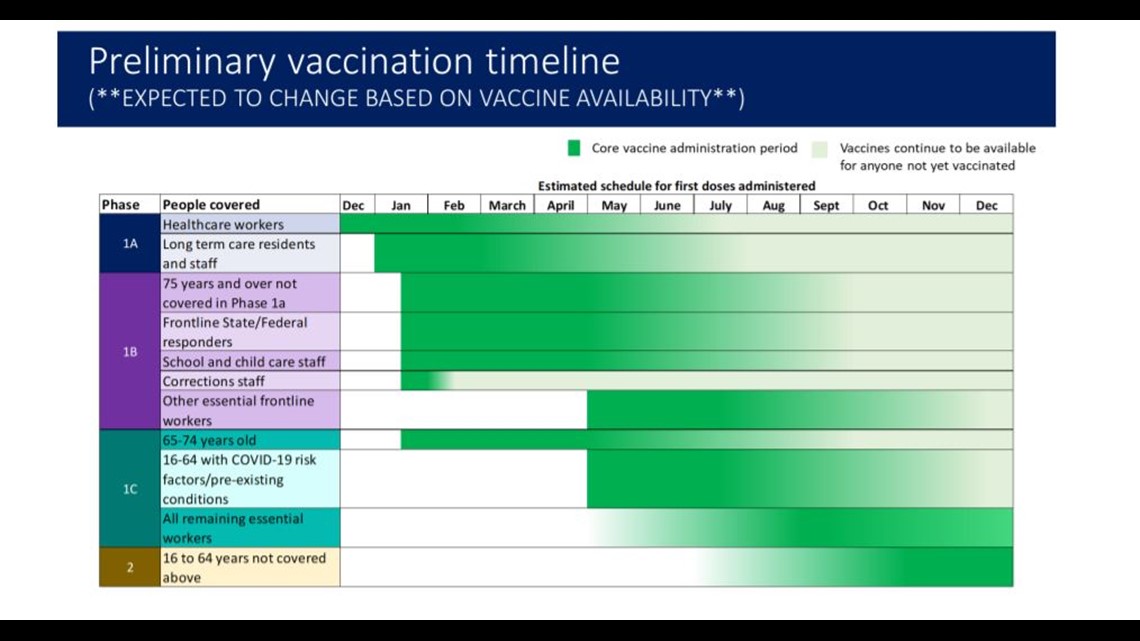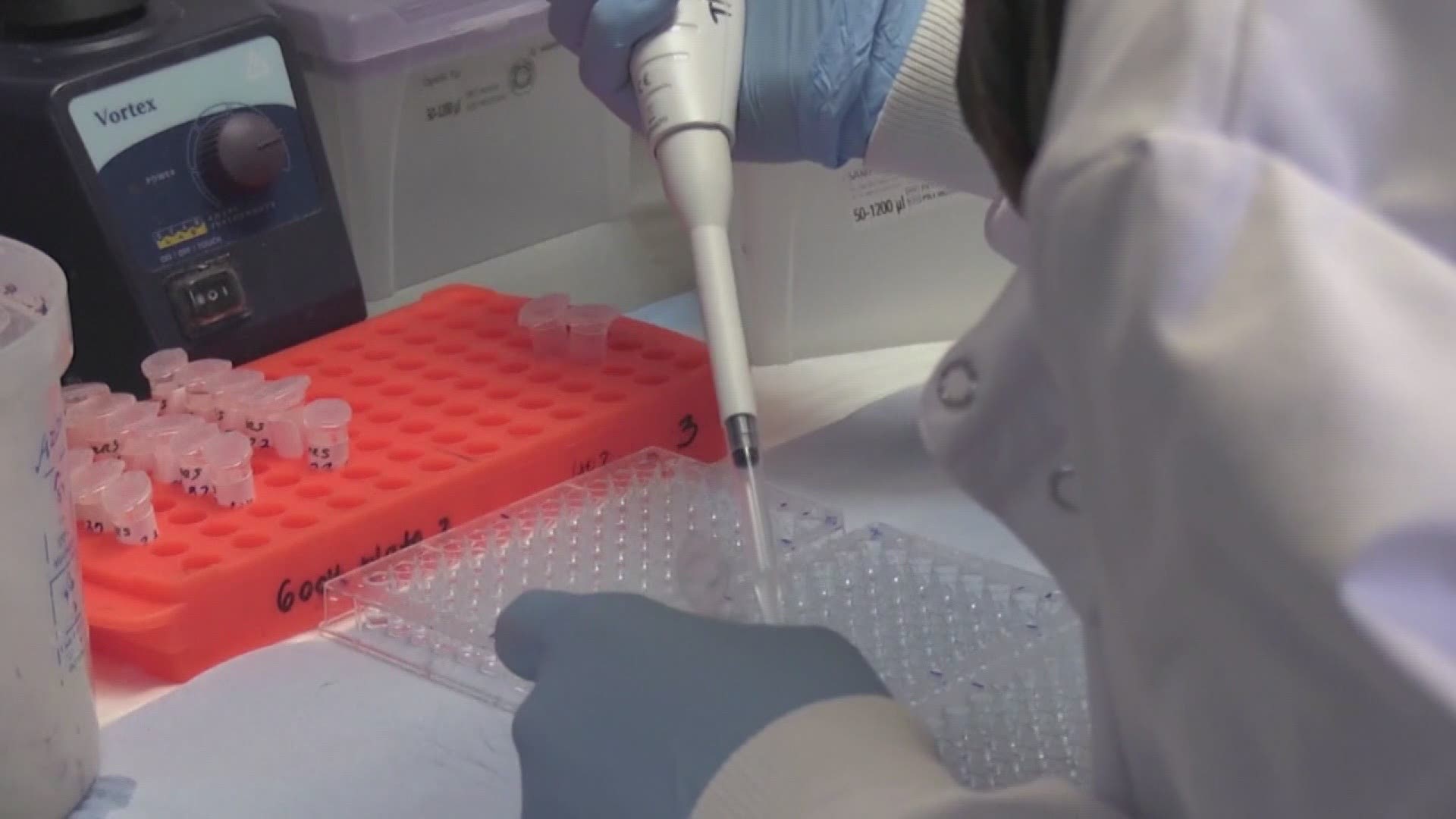The state health department has pushed back its estimates for when the COVID-19 vaccine will be available to future phases based on current supply, which providers say has been limiting.
Back in mid-December, Michigan's Department of Health and Human Services (MDHHS) aimed to rollout the vaccine to the general public by late spring, but based on a new timeline, which is subject to change, that rollout has been pushed to August.
"It's obviously more realistic," said Marcia Mansaray, deputy health officer of the Ottawa County Dept. of Public Health. "Spring was absolutely not going to happen. I think that they set that timeline with messaging that kind of led them to believe that their supply would be about five times or more what it actually has been."


Vaccines for essential frontline workers included in Phase 1B, along with people ages 16-64 years old with COVID-19 risk factors, are now projected to rollout in early May. The bulk of vaccinations of Phase 1B is expected to continue through the summer.
As of Monday, the state had distributed 1,049,575 doses and 487,959 have been administered, according to the vaccine dashboard. Of those doses, 245,100 went toward long term care facilities, where vaccines are largely being administered through a federal partnership with CVS and Walgreens.
State officials have said the gap between the doses administered and distributed are due to a lag in data and that many doses are already scheduled out. Many counties and health systems are opening up appointments digitally on a weekly basis based on their allotment, and each round of appointments are filling almost immediately.
Dr. Ronald Grifka, chief medical officer at Metro Health-University of Michigan Health, says he thinks the rollout will pick up pace making the new timeline achievable.
"We're going to iron a lot of the problems out, we've never done this before so we're learning as we go," Grifka said.
He's also hopeful that the arrival of additional and logistically simpler vaccines will aid in quickening the rollout.
The timeline is subject to change as the vaccine supply changes. At this point, MDHHS' goal remains to vaccinate 70% of the population 16 years and older, which equates to about 5.6 million people, by the end of the year.
Mansaray says she is hesitant to say August is attainable, yet.
"This is more realistic. Is it actually realistic? More time is needed to be able to tell for us," she said.
Ottawa County has about 45,000 who fall into the 65 and older category. She says the county has requested around 7,800 doses the last few weeks and been prepared to scale up a mass vaccination clinic only to receive about 975 doses.
"At the rate of 975 doses a week, knowing that everybody has to get two, we're looking at, you know, years of vaccinating that group. So, something's going to have to change," Mansaray said.
Michigan's vaccination phases:
Phase 1A: Paid and unpaid persons serving in healthcare settings who have the potential for direct or indirect exposure to patients or infectious materials and are unable to work from home as well as residents in long term care facilities.
Phase 1B: Persons 65 years of age or older and frontline essential workers in critical infrastructure.
Phase 1C: Individuals 16 years of age or older at high risk of severe illness due to COVID-19 infection and some other essential workers whose position impacts life, safety and protection during the COVID-19 response.
Phase 2: Individuals 16 years of age or older.
►Make it easy to keep up to date with more stories like this. Download the 13 ON YOUR SIDE app now.
Have a news tip? Email news@13onyourside.com, visit our Facebook page or Twitter. Subscribe to our YouTube channel.

